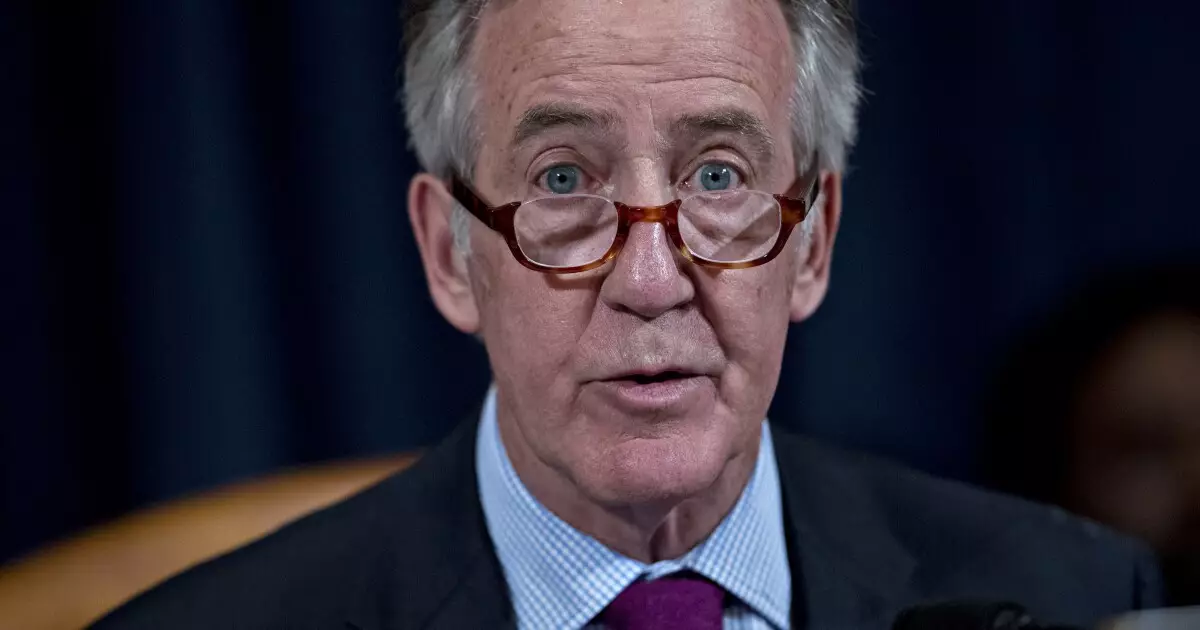The upcoming federal elections are set to unleash a wave of transformative changes across Congress, fundamentally redefining priorities in federal policy that will impact various sectors across the United States, including taxation, infrastructure, and financial markets. As pivotal Senate and House races conclude, the broader implications for key Congressional committees cannot be overstated.
In a landscape where every vote matters, 34 Senate seats are on the ballot, positioning Democrats with the opportunity to reclaim a House majority by simply flipping four seats. This precarious balance underscored by the Cook Political Report’s rating of 22 House contests as toss-ups speaks to the unpredictability of the current electoral climate. Polls reveal a nuanced landscape, suggesting a slight Republican advantage in a Democrat-majority Senate, while Democrats maintain a fragile lead in the Republican-controlled House.
The results will significantly influence the leadership of pivotal committees, particularly those affecting tax policies and infrastructure development. At the forefront, the Senate Finance Committee’s chairpersonship is anticipated to fall to Sen. Mike Crapo of Idaho if the Republican Party secures control of the Senate. As discussions surrounding the Tax Cuts and Jobs Act (TCJA) heat up, Crapo’s recent remarks indicate a push for extending existing tax provisions without offsetting revenue losses—a proposition that could shield the municipal bond tax-exemption from being regarded as a potential revenue source.
The forthcoming elections also carry weight for the Senate Committee on Banking, Housing, and Urban Affairs, where significant shifts are on the horizon. If established Chair Sherrod Brown from Ohio is defeated, Tim Scott, a ranking member and staunch Trump supporter from South Carolina, is likely to step into leadership. This transition could alter the direction of policy and regulation that governs the financial sector, with implications for both consumers and businesses.
On the House side, the Ways and Means Committee will undoubtedly play an influential role in the ensuing tax policy debate. Current Chair Jason Smith from Missouri is poised to expedite discussions on tax reform. He has actively engaged various tax teams to solicit diverse input on potential modifications to tax policies, particularly those associated with the expiration of key provisions from the TCJA in 2025. He has floated the idea of adjusting the cap on the state and local tax deduction—an issue vital to the municipal bond market.
Should the Democrats reclaim the House, long-time advocate Richard Neal from Massachusetts would likely reassume the chairmanship, bringing a wealth of experience that could positively influence discussions surrounding municipal bonds and other critical fiscal matters.
The Future of Infrastructure: A Congressional Priority
Infrastructure holds particular urgency as the next leader of the House Committee on Transportation and Infrastructure prepares for significant legislative work on transportation funding. Current Chair Sam Graves of Missouri, who is nearing the end of his term limit, is seeking a waiver to maintain his leadership position. Should he not succeed, Rep. Rick Crawford from Arkansas is positioned as a strong contender to succeed him. Conversely, if Democrats gain control, Rep. Rick Larsen of Washington would likely step into the chairman role.
With the Infrastructure Investment and Jobs Act set to expire in 2026, the incoming chair will face critical decisions about the future direction of funding—whether to prioritize competitive grants or bolster traditional formula funding mechanisms. Additionally, the status of the Highway Trust Fund looms large; the fund has reported staggering deficits, surpassing $21 billion in the fiscal year 2024, raising questions about the sustainability of federal transportation funding.
The anticipated turnover extends to the House Financial Services Committee, where the retirement of Chair Patrick McHenry from North Carolina opens the door for new leadership. Potential chairmanship candidates such as Andy Barr from Kentucky, Bill Huizenga from Michigan, and Frank Lucas from Oklahoma highlight the shifting dynamics within the Republican Party. If Democrats prevail in the House, Maxine Waters from California is expected to retake the gavel, potentially prioritizing critical issues such as long-term reauthorization of the flood insurance program—an area of significant importance for disaster preparedness and risk management.
As the election results become clear, the reshaping of crucial Congressional committees can be expected, signifying a potential turning point in U.S. policy. The implications extend far beyond party lines, affecting the municipal bond markets, tax legislation, infrastructure funding, and economic stability for citizens across the nation. The outcome of these elections is not merely a matter of politics; it is a question of how the next wave of leadership will manage the pressing challenges facing the country today and in the foreseeable future.

